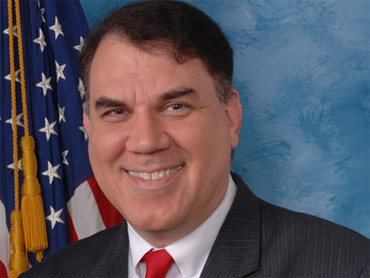Representative Alan Grayson, then a Democratic Congressman from Florida, ignited a firestorm of controversy in 2009 when he referred to Linda Robertson, an advisor to Federal Reserve Chairman Ben Bernanke, as a “K Street Whore.” This derogatory term, uttered during a radio interview, quickly drew widespread condemnation and thrust Grayson into the national spotlight for reasons beyond policy debates. The incident serves as a stark example of the volatile language sometimes employed in political discourse and highlights the often-contentious relationship between politicians, lobbyists, and the financial world in Washington D.C.
The remark, made on the Alex Jones radio show, was part of Grayson’s criticism of Robertson’s role in the debate over auditing the Federal Reserve. He stated, “this lobbyist, this K street whore, is trying to teach me about economics.” The immediate fallout was intense and bipartisan. Fellow Democratic Representative Anthony Weiner publicly questioned Grayson’s mental acuity, while voices across the political spectrum decried the use of such offensive language.
Initially, Grayson defended his statement. His spokesman, Todd Jurkowski, attempted to contextualize the insult, claiming it was an attack on Robertson’s professional career, not her personal life. Jurkowski pointed to Robertson’s lobbying background, including past work for Enron, and accused her of questioning Grayson’s understanding of economic policy. This defense, however, did little to quell the outrage.
 Alan Grayson speaking at a podium with a microphone, with the text grayson.house.gov visible in the image, representing his official capacity as a member of the House of Representatives during the time of the "K Street whore" controversy.
Alan Grayson speaking at a podium with a microphone, with the text grayson.house.gov visible in the image, representing his official capacity as a member of the House of Representatives during the time of the "K Street whore" controversy.
Understanding the Term: “K Street Whore” and its Implications
To grasp the gravity of Grayson’s comment, it’s crucial to understand the term “K Street whore.” “K Street” is synonymous with the lobbying industry in Washington D.C., as it houses numerous lobbying firms and organizations. Lobbyists, in their professional capacity, advocate for specific interests, often corporate or industry-related, aiming to influence legislation and policy decisions.
The term “whore,” in this context, is used as a deeply derogatory slur, implying that the individual is selling their integrity and influence for money, drawing a parallel to prostitution. When combined with “K Street,” it paints a particularly scathing picture of lobbyists as morally bankrupt individuals who prioritize financial gain over ethical considerations or the public good. While “K Street whore” is considered a harsh and offensive term within Washington D.C. circles, its connection to the even more vulgar and misogynistic “street whore” further amplifies its insulting and demeaning nature, particularly towards women.
The Apology and Lingering Controversy
Faced with mounting pressure and widespread criticism, Grayson eventually issued an apology. He stated, “I offer my sincere apology to Linda Robertson… I did not intend to use a term that is often, and correctly, seen as disrespectful of women.” He acknowledged the inappropriateness of his characterization and apologized for its use.
Despite the apology, the incident left a lasting mark on Grayson’s public image. It reinforced a perception of him as a political figure willing to employ inflammatory rhetoric, a reputation that had been building with previous controversial statements, such as his assertion that the Republican health care plan was to “die quickly if you get sick.”
The “K Street whore” episode highlights several key aspects of political discourse and the lobbying landscape:
- The Power of Language: Words, especially in the political arena, carry significant weight. Derogatory terms can quickly escalate tensions, overshadow policy debates, and damage reputations.
- Lobbying and Public Perception: The incident reflects a pre-existing public skepticism and negative perception of lobbyists. Terms like “K Street whore,” however offensive, resonate with a segment of the population who view lobbying as inherently corrupt or unethical.
- Gendered Insults in Politics: The use of “whore” specifically targets a woman and carries a deeply misogynistic undertone, raising questions about gender bias in political attacks and the language used against women in positions of power.
- Political Accountability: The swift and widespread condemnation of Grayson’s remark, even within his own party, demonstrates a degree of accountability for offensive language, although the effectiveness and sincerity of such accountability remain subjects of ongoing debate.
In conclusion, the “K Street whore” controversy surrounding Alan Grayson’s comments provides a valuable case study in the intersection of political rhetoric, lobbying culture, and public perception. It underscores the potential damage of inflammatory language, the complex dynamics of Washington D.C.’s political landscape, and the ongoing challenges of maintaining civility and respect in public discourse.

